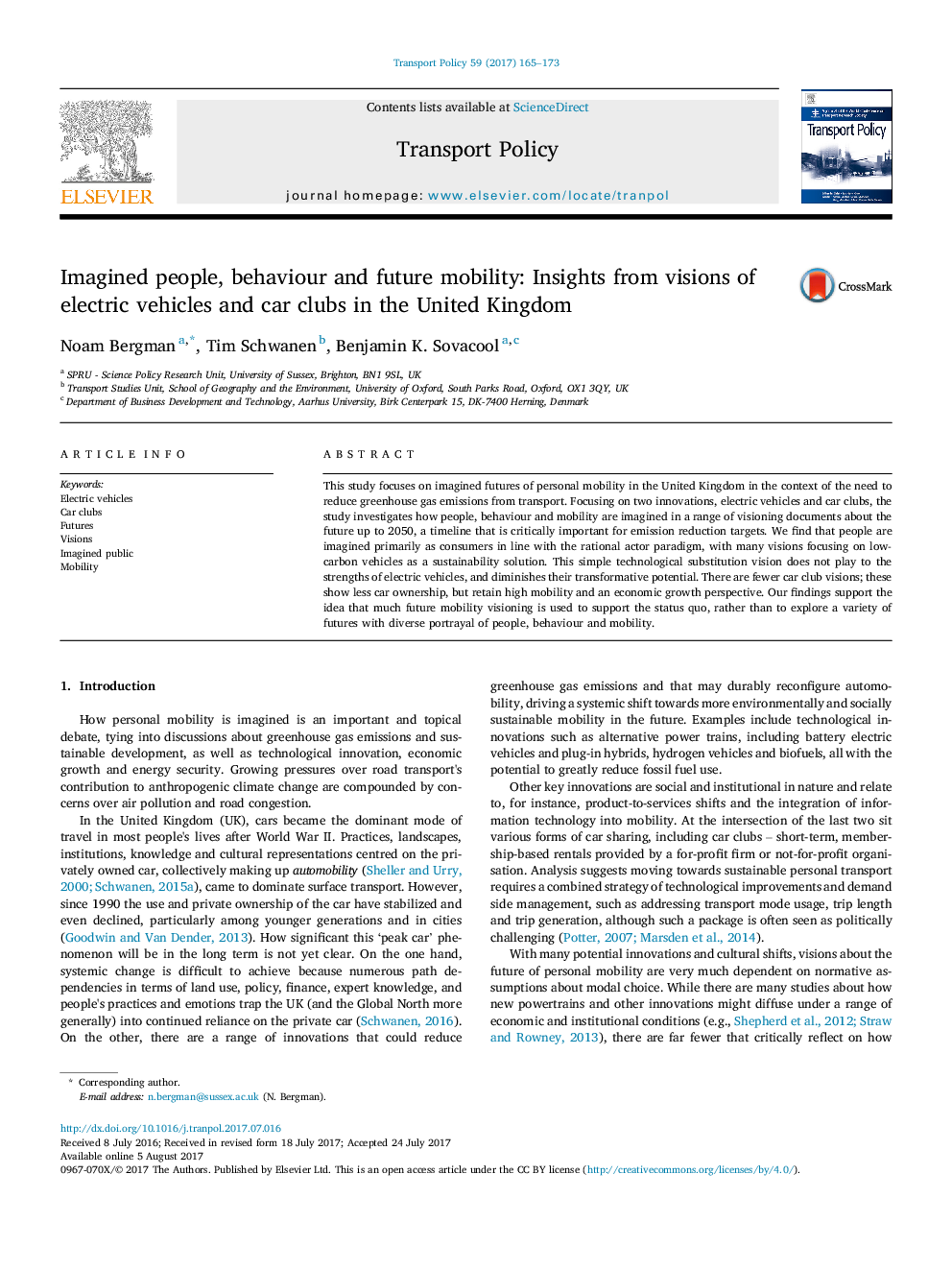| Article ID | Journal | Published Year | Pages | File Type |
|---|---|---|---|---|
| 5119143 | Transport Policy | 2017 | 9 Pages |
â¢Visions of personal mobility futures in the UK are analysed.â¢People are imagined mostly as (rational) consumers who purchase and drive cars.â¢Many visions see privately-owned, car-centred mobility continuing as at present.â¢These powerful visions portray a future supporting the status quo and incumbents.â¢Alternative visions, e.g. integrated transport including car clubs, are less common.
This study focuses on imagined futures of personal mobility in the United Kingdom in the context of the need to reduce greenhouse gas emissions from transport. Focusing on two innovations, electric vehicles and car clubs, the study investigates how people, behaviour and mobility are imagined in a range of visioning documents about the future up to 2050, a timeline that is critically important for emission reduction targets. We find that people are imagined primarily as consumers in line with the rational actor paradigm, with many visions focusing on low-carbon vehicles as a sustainability solution. This simple technological substitution vision does not play to the strengths of electric vehicles, and diminishes their transformative potential. There are fewer car club visions; these show less car ownership, but retain high mobility and an economic growth perspective. Our findings support the idea that much future mobility visioning is used to support the status quo, rather than to explore a variety of futures with diverse portrayal of people, behaviour and mobility.
